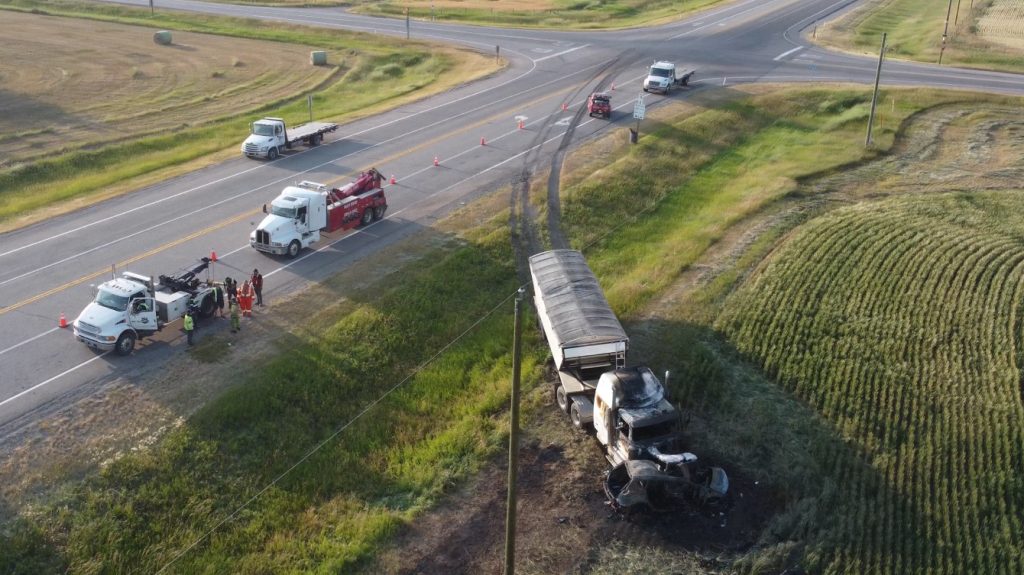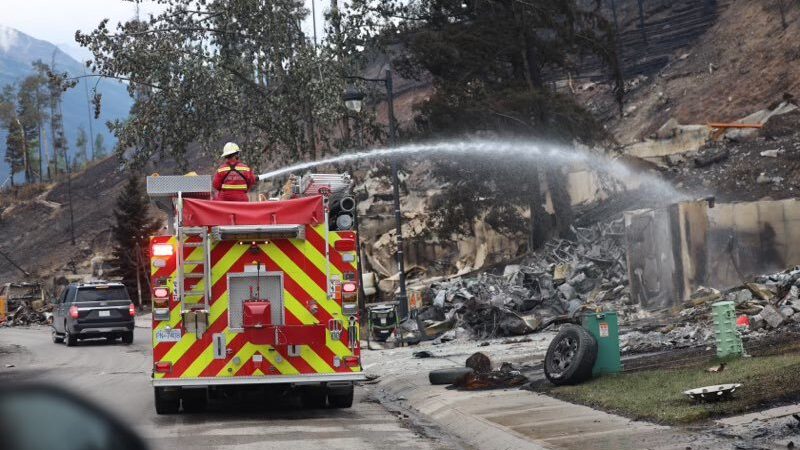Veteran Calgary homicide detective finds hope and humanity amid horror

Posted Dec 2, 2023 6:35 am.
It’s impossible not to learn something about life when investigating death.
When veteran Calgary police homicide detective Dave Sweet retired last month, he walked away a changed person.
“You realize life isn’t promised for anybody, tomorrow is not a guarantee,” he said. “The things I want to do today, I should do. Make an impact today on your life and on the lives of others.”
Sweet’s career choice was inspired by a grandfather he never knew who worked as a police officer in New York in the early 1900s.
“My mom kept a whole bunch of memorabilia including a bunch of news articles,” he said. “I was reading about a man saving a life of a man who jumped from a bridge or him chasing bad guys over rooftops in New York CIty.
“Who wouldn’t want to do that?”
In 1998, Sweet joined the Calgary Police Service.

By 2009, he was working on the homicide team.
After being part of investigations into more than 600 homicides and suspicious deaths, Sweet is certain of one thing.
No one wins
“It’s sad all around,” Sweet said. “When you are investigating peoples’ murders it’s grim and there are always three sides — there is the deceased, the family who is left behind and the accused and his or her family.
“It’s never a feel-good story. Where you get your satisfaction is being able to say, ‘Hey, you know what, I’ve collected the evidence to be able to explain the circumstances or identify the person or culprit that is responsible for this crime,” he continued.
“But at the same time, a lot of these people convicted of murder many would never commit murder again. They’re young people.
“They had their whole life ahead of them and they are going to jail for a long time,” Sweet said. “That doesn’t necessarily feel good either, to be honest with you.”
That said, absolutely, he’d do it all over again.
“Homicide is an area of the service unlike any other,” Sweet said. “There was no other area that I’d been where I could have as much impact on people, the living, as I did in homicide.”
For the most part he said he did his job and let the courts do what it did knowing the latter was out of his hands.
“Were there cases where I felt somebody had done something really terrible deserved more time behind bars? Sure. But those weren’t my decisions,” he explained. “You’re satisfied the family has an answer and an explanation on at least who was responsible for taking their loved one’s life.”

Sweet says forging relationships with those left behind sustained him over so many years.
“The first day you meet a family and they are absolutely heartbroken and devastated by the loss and you watch them over the next few years go through to where — they always wish whatever happened to their loved one didn’t happen — but they slowly start to climb out of that role they were in when you first met them,” he recalled.
“You get a lot of satisfaction that your compassion or kindness or professionalism was maybe one of the things that helped them to leave and not be trapped in a really, really dark place,” Sweet added.
A case is never closed
Sweet says it’s also rewarding when someone who evades the long arm of the law is eventually caught.
That was the case with Tara Landgraf, says the retired detective, who was repeatedly stabbed and left to die more than a decade before someone was put before courts.
“The case eventually went cold and was just solved a few years ago by the cold case team,” Sweet said. “I was tasked with arresting the individual who at the time of the offence was just a young person — 16 years old — and now they are a 30-year-old man.
“I mean, the shock and awe on their face to know something they had done — which for them was a million years ago — had come back full circle was an experience to see.”
Sweet also believes no one is immune to having the potential to take someone’s life.
Several years ago, he says a young man was leaving a bar with his girlfriend and her friends when they ran into a few guys that tried to lead them into their vehicle.
“So he kind of came to the rescue and the next thing you know, there is a shooting and he is killed,” Sweet recalled. “Two minutes before he left the bar, he had no idea that was what was going to happen and I don’t think the person who was convicted knew two minutes ahead of time they were gonna be involved in a murder.”
“It was just this fateful set of circumstances that brought people together,” he adds. “It is in all of us if the right set of circumstances play out in front of us it is plausible anybody could take somebody’s life.”
Sweet says he is excited about ongoing developments that will support future homicide detectives.
“It’s amazing, it’s all advanced so much,” he said. “Back in 1998, you needed a pool of blood, for example, to generate a DNA profile.
“As time is going on, some of these cases are being solved because of new strategies.”
Sweet is now a consultant, author, and on the board of Gems for Gems, a local organization committed to ending the cycle of domestic violence.
“I got tired of reacting to the end result of intimate partner violence and wanted to do something to prevent it and raise awareness around partner violence,” he said. “In 2022, 184 women and girls were killed in Canada, that’s almost one every 48 hours.”








